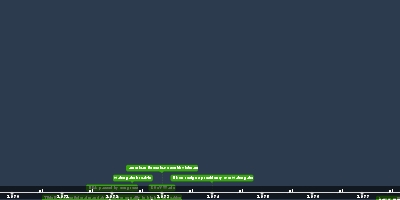OPEC oil embargo; gas shortages (1 janv. 1973 – 31 déc. 1974)
Description:
OPEC:An alliance of oil-rich countries founded in 1960 to set prices and regulate the oil market.energy crisis:A period of fuel shortages in the United States after the Arab states in the Organization of Petroleum Exporting Countries (OPEC) declared an oil embargo in October 1973
Gas shortage signs like this one were common during the energy crisis of the early 1970s. Fuel rationing, and high prices when fuel was available, were evidence of the declining economic fortunes of the United States in that decade, which one American politician called “an era of limits.”
Modern economies run on oil. A reduction in oil supply invariably leads to higher prices, which leads to economic trouble. Americans were forced to learn this basic economic lesson in the 1970s. Once the world’s leading oil producer, in the early 1970s the United States had become heavily dependent on inexpensive imported oil, mostly from the Persian Gulf (Figure 28.1). French, British, and American companies extracted the oil, but they did so under profit-sharing agreements with Persian Gulf states. In 1960, those Middle East nations and other oil-rich developing countries, such as Venezuela, formed the Organization of Petroleum Exporting Countries (OPEC) cartel, an alliance to set prices and regulate the market for oil.
Coal was the nation’s primary source of energy until the 1950s, when it was surpassed by oil and natural gas. The revival of coal consumption after 1960 stemmed from new open-pit mining in the West that provided cheaper fuel for power plants. The decline in oil consumption in 1980 reflects the nation’s response to the oil crisis of the 1970s, including, most notably, fuel-efficient automobiles. Nuclear energy became an important new fuel source, but after 1990 its contribution leveled off as a result of the safety concerns triggered by the Three Mile Island incident.
OPEC’s predominantly Arab member nations were initially reluctant to use their oil production as a political weapon, but that changed with the 1967 Six-Day War between Israel and the Arab states of Egypt, Syria, and Jordan. Following Israel’s victory in that conflict, the Israeli-Arab relationship grew closer to exploding with each passing year. In October 1973, Egypt and Syria invaded Israel to regain lost territory, in what became known as the Yom Kippur War. Israel prevailed, but only after an emergency airlift of American military aid. In response to Western support for Israel, the Arab states in OPEC declared an oil embargo — exports to allies of Israel were banned and overall production reduced. Gas prices in the United States quickly jumped by 40 percent and heating oil prices by 30 percent. Demand outpaced supply, and Americans found themselves parked in long gas pump lines for much of the winter of 1973–1974.
The United States scrambled to cope with this energy crisis. Just two months after the OPEC embargo began, Congress imposed a national speed limit of 55 miles per hour to conserve fuel. Americans began to buy smaller, more fuel-efficient imported cars such as Volkswagens and Toyotas — while sales of gas-guzzling American-made cars slumped. With one of every six jobs in the country generated directly or indirectly by the auto industry, a downturn for Detroit rippled across the entire economy. Compounding the distress was runaway inflation set off by the oil shortage. Prices of basic necessities, such as bread, milk, and canned goods, rose by nearly 20 percent in 1974 alone. “things will get worse,” one newspaper headline warned, “before they get worse.”
Ajouté au bande de temps:
Date:
1 janv. 1973
31 déc. 1974
~ 1 years and 11 months
